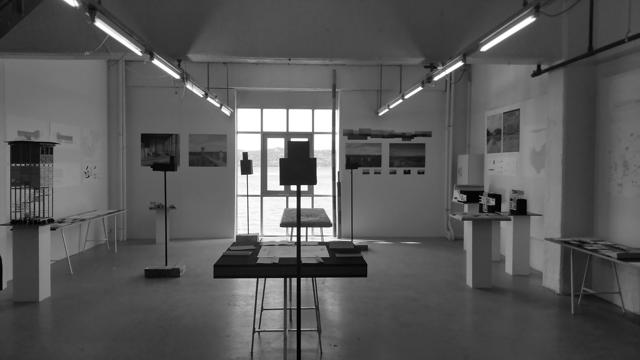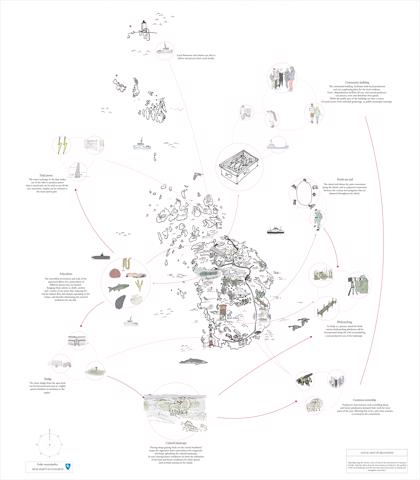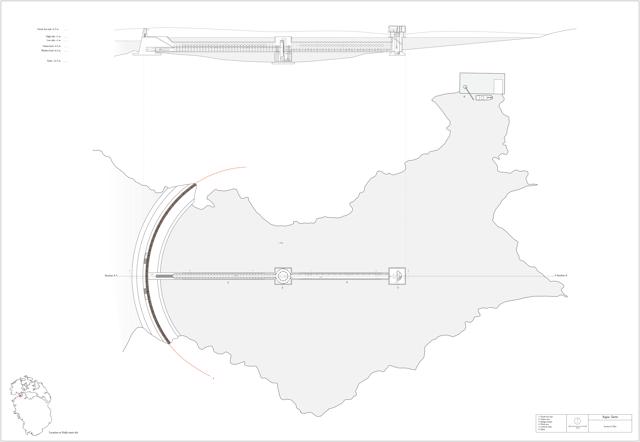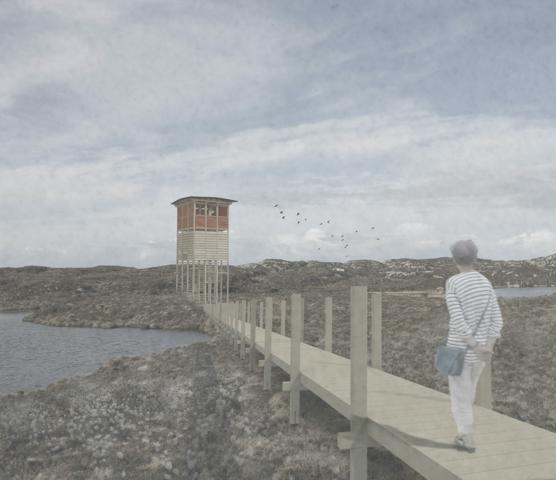Diploma 2017: "Towards a modern ruralism: Investigating the potential of the West coast Country side" by Christopher Byrne and Sondre H. Bakken
Tutors: Joakim Skajaa (APP), Hedvig Skjerdingstad (DAV, Harald Røstvik (sustainability), Sigurdur Gunnarson (TTA)
Traditionally the farmers on the west coast of Norway had a series of occupations that varied throughout the year. Working the land in the spring, craftsman in the summer and fished during the winter. This range of trades made the farmer more robust in case of sudden changes. In the past century there has been a shift towards a more monoculural way of life, making the rural communities more vulnerable to such changes.
Our initial thoughts on a new strategy of rural developement aimed to learn from the traditional farmers robustness, by re organizing the primary sector in a way that strengthens the diversity of the producers in the countryside.
- Reflections on the begining of our project and our topic
This diploma is an investigation on the productive landscape and the existing conditions of rural settlements in Hordaland county on the Norwegian West coast. As the primary sector is decreasing and the younger generation is moving from the countryside many of the rural communities are suffering from decay. We would like to open a discussion on how one could preserve such communities as a viable alternative to the city and maintaining primary sector as a key asset also in the future.
Our diploma takes a critical stance towards prevailing planning ideologies. We debate that the development of settlements over the last century have favored an urban approach and have neglected the productive countryside. At the same time, we have to acknowledge the limitations and challenges of not living in an urban area. An important part of our work will be to identify the local resources and try to unveil some unexploited potential at our chosen location.
Our thoughts on future rural development is exemplified through a series of architectural interventions on the island municipality of Fedje. Where we have explored the local conditions and resources through research and 1:1 sketches on-site.
On one level our work has materialized as a local strategy with three architectural projects that act on a communal scale. A fish landing with incorporated public functions, an aqua farm as an economic driver, and a trail along the coast of the island that both works with moving in the landscape and physically connecting the projects and the existing built enviroment at Fedje.
On a second level we have developed a knowledge network that acts on a regional level, discussing the relation between the different landscapes and settlement types and how they could strenghten eachother.
Our final project should not be seen as a definite answer, but as a contribution to the ongoing debate on the future development of rural Norway.
As our work progressed we realized that the productive landscape is more than just physical production. By looking at the full range of local resources we found that for example creating a birdwatching industy holds much higher value than directly harvesting from the birds. We have aimed to implement the multifaceted qualities of the traditional farmer, on to the communites as a whole. Giving the rural settlements a wider range of industries as a base for future developement.
By identifying and strengthening the specific qualities and resources anchored to a tplace, we aim to create rural communites that move towards what we call a mordern ruralism.
IMAGE TEXT:

Exhibition photo.

Local strategy and relation betweend the different actors in the project.

Aqua farm – Situational drawing.

North Sea Trail - Approach to birdtower.

Communal building - Perspective section showing the life of the building.
